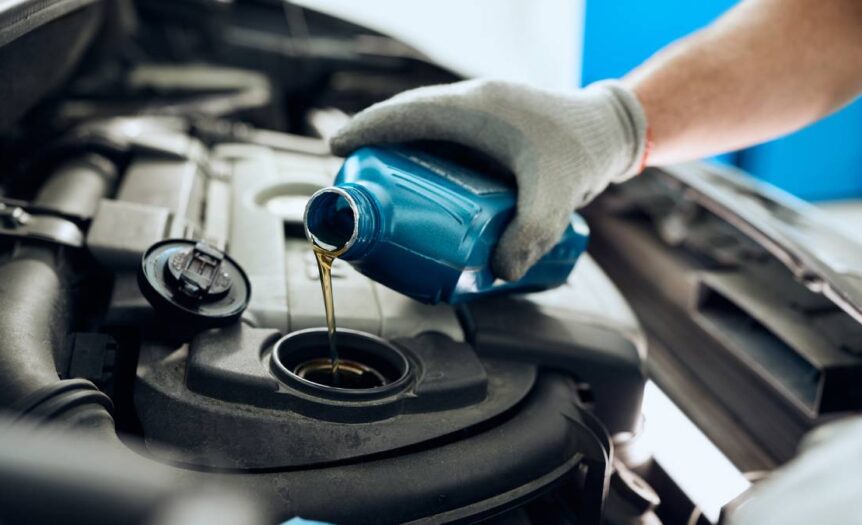Your car’s engine is its heart, and just like any heart, it needs proper care to keep beating. For many car owners, especially those new to vehicle maintenance, understanding how to protect and extend the life of an engine can seem daunting.
However, with a bit of knowledge and regular upkeep, you can ensure your engine remains in peak condition. Our guide will walk car owners through what they need to do to protect their engines.
Stay On Schedule With Oil Changes
One of the most fundamental aspects of engine protection is regular oil changes. Oil lubricates the engine’s moving parts, reducing friction and preventing overheating.
Using the right type of oil is also crucial, as different engines have different requirements. Consult your vehicle’s manual to determine the best oil for your car, and stick to the recommended oil change intervals to keep your engine in top shape.
Inspect the Coolant Regularly
Another critical factor in engine health is the coolant system. The coolant helps regulate the engine’s temperature, preventing it from overheating. Regularly check the coolant levels and look for any signs of leaks.
If you notice the engine temperature gauge rising, it’s essential to address the issue immediately. Keeping the cooling system in good condition will ensure that your engine operates within the optimal temperature range, reducing the risk of damage.
Change Air Filters According to the Schedule
Routine maintenance of air filters is crucial for optimal engine performance. Air filters keep dirt and debris from entering the engine, ensuring a clean air supply.
Over time, filters can become dirty, leading to reduced efficiency and increased fuel consumption. Regularly checking and replacing air filters will help maintain your engine’s efficiency and extend its lifespan.
Swap Out Spark Plugs as Needed
Spark plugs are small but essential components in an engine. They create the spark that ignites the air-fuel mixture, powering the engine’s combustion process.
Over time, spark plugs can wear out or become fouled with deposits, resulting in misfires and reduced performance. Replacing spark plugs on schedule will ensure efficient combustion and prevent potential damage to your engine. Take care to choose the right spark plug for your vehicle to ensure the health and performance of your engine.
Curb Aggressive Driving Habits
Regular maintenance is crucial, but your driving habits also significantly impact engine health. Aggressive driving that involves rapid acceleration and hard braking can strain the engine. Aim for smooth driving with fewer sudden starts and stops to enhance fuel efficiency and reduce wear on components.
Also, avoid prolonged idling, as it can overheat the engine. Turning your vehicle off when you’re not actively driving can provide relief. Lastly, be mindful of your vehicle’s load capacity, as overloading can lead to premature wear and potential damage.
Keep Your Car’s Engine Healthier for Longer
We hope our simple but important car owner’s guide to protecting your engine helps your vehicle’s engine run better for longer. By adopting regular maintenance practices and safer driving habits, you prioritize the longevity and performance of your car. By prioritizing engine health, you’ll enjoy long-term savings and a reliable vehicle that serves you well for years to come.










 Deering Estate
Deering Estate
 Massage Envy South Miami
Massage Envy South Miami
 Calla Blow Dry
Calla Blow Dry
 My Derma Clinic
My Derma Clinic
 Sushi Maki
Sushi Maki
 Sports Grill
Sports Grill
 The Healthy Kitchen
The Healthy Kitchen
 Golden Rule Seafood
Golden Rule Seafood
 Malanga Cuban Café
Malanga Cuban Café

 Kathleen Ballard
Kathleen Ballard
 Panter, Panter & Sampedro
Panter, Panter & Sampedro
 Vintage Liquors
Vintage Liquors
 The Dog from Ipanema
The Dog from Ipanema
 Rubinstein Family Chiropractic
Rubinstein Family Chiropractic
 Your Pet’s Best
Your Pet’s Best
 Indigo Republic
Indigo Republic




 ATR Luxury Homes
ATR Luxury Homes


 2112 Design Studio
2112 Design Studio
 Hamilton Fox & Company
Hamilton Fox & Company
 Creative Design Services
Creative Design Services
 Best Pest Professionals
Best Pest Professionals
 HD Tree Services
HD Tree Services
 Trinity Air Conditioning Company
Trinity Air Conditioning Company
 Cisca Construction & Development
Cisca Construction & Development
 Mosquito Joe
Mosquito Joe
 Cutler Bay Solar Solutions
Cutler Bay Solar Solutions


 Miami Royal Ballet & Dance
Miami Royal Ballet & Dance
 Christopher Columbus
Christopher Columbus
 Pineview Preschools
Pineview Preschools
 Westminster
Westminster
 Carrollton
Carrollton
 Lil’ Jungle
Lil’ Jungle
 Frost Science Museum
Frost Science Museum
 Palmer Trinity School
Palmer Trinity School
 South Florida Music
South Florida Music
 Pinecrest Orthodontics
Pinecrest Orthodontics
 Dr. Bob Pediatric Dentist
Dr. Bob Pediatric Dentist
 d.pediatrics
d.pediatrics
 South Miami Women’s Health
South Miami Women’s Health

 The Spot Barbershop
The Spot Barbershop
 My Derma Clinic
My Derma Clinic




 Miami Dance Project
Miami Dance Project

 Rubinstein Family Chiropractic
Rubinstein Family Chiropractic
 Indigo Republic
Indigo Republic

 Safes Universe
Safes Universe
 Vintage Liquors
Vintage Liquors
 Evenings Delight
Evenings Delight





 Atchana’s Homegrown Thai
Atchana’s Homegrown Thai
 Baptist Health South Florida
Baptist Health South Florida

 Laser Eye Center of Miami
Laser Eye Center of Miami
 Visiting Angels
Visiting Angels
 OpusCare of South Florida
OpusCare of South Florida

 Your Pet’s Best
Your Pet’s Best





 HD Tree Services
HD Tree Services
 Hamilton Fox & Company
Hamilton Fox & Company


 Creative Design Services
Creative Design Services